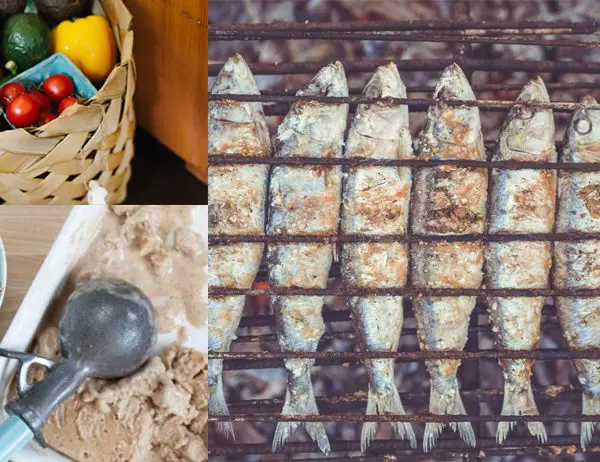
- Uncategorised

- News
Nutrition and Hydration Week 14-20 March 2016

This month we’re helping to raise awareness of this year’s Nutrition and Hydration Week with an added focus on nutrition for optimum eye health. Running from the 14th -20th March, this is a great time to assess your own intake of nutrition within food and drink to increase your individual health and wellbeing from within. As the saying goes, you get out what you put in, so here are our tips and tricks to introduce more nourishment into your daily diet in the form of a 1 week plan of simple swaps. Did you know 3 million people are at risk of malnutrition in the UK?
Monday: Oaty breakfast.
Swap your usual breakfast for a wholegrain oat based breakfast such porridge. Whole grains contain a low glycemic index (GI) which can help reduce the risk of age-related macular degeneration which is a disease that gradually causes the loss of central vision. We also suggest topping your porridge with blueberries which not only add a touch of sweetness but contain a whole host of antioxidants, minerals and vitamins which are of particular benefit for maintaining eye health.
Tuesday: Super Snacks.
If you find yourself hankering for a little something in between meals, instead of reaching for the biscuits, prepare little snack pots to tied you over. Our favourite combination is pumpkin seeds, cranberries and little chunks of dark chocolate. Pumpkin seeds contains zinc which helps the process of creating melanin which protects the eye while cranberries significantly improve symptoms of cataracts, macular degeneration and diabetic retinopathy. Dark chocolate gives a lovely richness to the mix while also being good for heart health. So called ‘healthy’ cereal and snack bars usually contain a lot of refined sugars so it’s always best to prepare your own snacks.
Wednesday: Afternoon Tea.
If you usually stop for an afternoon tea of coffee, consider swapping your usual brew for green or the purer white tea instead. A 2010 study conducted by Chinese University of Hong Kong shown that green tea antioxidants can be found in eyes more than 20 hours after they have been consumed. These antioxidants protect the retina and lens against UV damage and also prevent the formation of cataracts, age related macular degeneration and glaucoma.
Thursday: Thirsty Thursdays.
We all know it’s important to drink around eight cups of water a day but did you know you can also hydrate your body by eating water? Foods such as cucumbers, pomegranates, watermelons, avocados, broccoli and mangos all help your body to hold onto water to hydrate. Keeping hydrated is essential in eye health as it will help your eyes feel brighter and more refreshed.
Friday: Fishy Fridays
Fish rich in omega 3 fatty acids are essential in supporting healthy tear production and overall macular health. We recommend eating at least one portion of omega 3 rich fish a week such as mackerel, salmon and sardines, which you could swap out your usual battered cod with. If smoked mackerel is too strong for your taste, try unsmoked mackerel fillets, fry them for 6 minutes in minimal oil (or BBQ) and enjoy with a squeeze of lemon juice alongside your favourite greens and potato side.
Saturday: Smoothie.
Smoothies are a popular way of getting your 5 a day with ease and are perfect to start your weekend with, perhaps instead of a typical weekend fry-up! Making your own is simple too – try making your own delicious Peach Melba smoothie by simply blending 4006 peach slices, 300g raspberries, 600 organic orange juice, 800ml of ready to serve custard and 25g of broken up meringues – yum!
Sunday: Simply Sundaes
Ideal for the upcoming summer, healthy ice cream sundaes are a fun and delicious way to get fresh fruit into the system which could replace your usual Sunday dessert choice. We’ve found a great recipe for a super healthy yet super tasty, banana, date and pineapple ice cream smoothie – full of vitamin A to protect the eyes. Get the recipe.
For more information about Nutrition and Hydration Week, visit the official website.
Reviews







